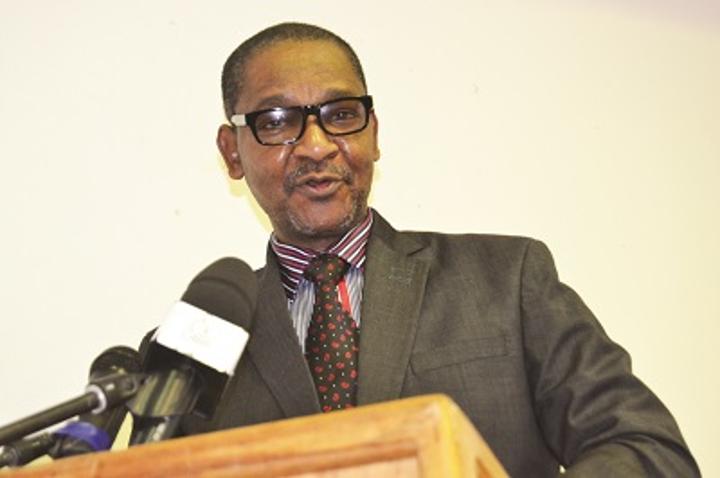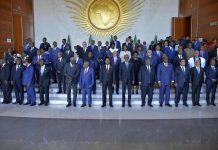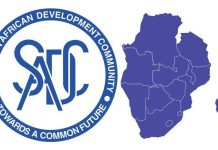Africa-Press – Lesotho. The National University of Lesotho (NUL) incoming Vice Chancellor (VC) Professor (Prof) Olusola Isaac Fajana has promised to turn the university into a an institution of international
distinction. “The NUL is a national icon and a legacy. The achievement of its goals by competing favourably among the regional or global comity of higher institutions would give government and
citizens a huge source of pride,” he said. This he told the journalists on Thursday last week at the press briefing held at NUL main campus at Roma. The incumbent is the 10th VC of NUL.
Prof Fajana succeeds Prof Nqosa Mahao who served from 2014 to 2019. Prof Vice Chancellor Kananelo Mosito has been holding the fort as the VC following the
departure of the then acting VC Prof ‘Manthoto Lephoto. The new VC assumed duty on August 2. He has a long record working in academia space. Prof Fajana brings the competencies of industrial
relations and personal management having been trained in those fields. Outlining his mission for the university, Prof Fajana said he will endeavour to “make NUL an institution
of international distinction through the high quality of its graduates, the global relevance of its curricula, the uniqueness of adopted pedagogies, relevant development-oriented researches and innovations, and community service.
“NUL shall provide innovation and policy services of distinction to Africa and the world, in a
secure and peaceful environment driven by integrity, diversity, dignity, productivity and commitment, competitiveness, and prudence: core values the African people delightfully relish and promote,” he said.
He adds: “I have since had a great time on the ground in the university going through a very organised schedule of on boarding that enabled me to see first-hand the opportunities and
threats as well as the strengths and weaknesses, together with the policies and procedures of the university as it progressively operates within a chequered
history of growth and steady development, legacies and impacts for the past 75 years of its existence. The NUL has paid credible dues in providing solutions
to the economic, social, political, legal and technological challenges confronting the Kingdom of Lesotho and the African region, as well as the globe.
” He however did not attach timeframe to his goals saying he plans to achieve them within the five year
period which is his tenure as the NUL VC. The VC is an ex officio member of the University Council and the Senate Chairperson. According to the NUL website, the VC is the Chief Academic and Administrative Officer of the
university. As a Chief Strategist the CV is charged with the responsibility to coordinate academic, administrative, corporative, financial, human resources
and physical plans for the development of the institution. The former Vice-Chancellor at the Joseph Ayo Babalola University, Ikeji-Arakeji, Nigeria (2011- 2018) further took stock on what he called the NUL reliance on
expatriates in its top echelons promising to reverse the status quo saying: “As a professional of African origin and nurture, my coming on board gives me
an opportunity to do a corrective to this perception; and so please permit me to share a different view. I do not see myself as an expatriate, but rather as
an African with a global orientation, with the prospect of making an impact at the NUL. This global orientation is a must for humanity at a time like this
when globalisation has made the world a very small village, especially in the aftermath of Covid-19, climate change and surge in global terrorism. ” Asked if he will run with
the projects which were already in the pipeline, he said they will be executed provided the council has approved them and there is budget to undertake them.
He envisions NUL as a “unique brand” ranking amongst the first 50 universities in Africa, the figure he revised from five “after seeing the situation on the ground” and among the
first 500 globally. Prof Fajana said his journey will be guided by the following seven strategies and policies: Peace and open-door policy, Infrastructural developments, Funding strategies,
Academic leadership, Industrial Relations and Human resource strategies, Staff welfare and University-Town linkage. “Academic Staff must be adequate in number and quality.
The efforts of NUL to increase the proportion of staff with a PhD, and the professorial group will be strengthened. Opportunities for studies abroad will
be explored. Extra pay for professors and lecturers will be pursued. We shall strive to get industry to fund research,” he said. On student academic affairs, he mentioned a need for the appropriate strategy which will “enable
students to enjoy a conducive environment for learning, including a friendly but firm approach by staff members in their teaching, discipline and mentoring
functions”. He further argued that: “A satisfied student will be an engaged alumnus; current students and alumni will sell NUL to their peers to instigate massive enrolment by admission seekers and donations by the alumni.
There must be peace among students and the university management, staff and the host communities. ” Prof Fajana joins the institution at a time that learning is largely offered online owing to the Covid-19
induced health challenges of voluminous gatherings. “Higher education innovation is never a one off phenomenon, but it is rather continuous, paving way for continuous improvement especially given contemporary trends that
requires organisational resilience. Moving the NUL forward by upping its agility to the point of setting pleasing paces of distinction and global prominence is a task for all its stakeholders.
These tasks are perfectly within our exceptional endowment and certified competence. “A single tree cannot make a forest. I wish to call on all lovers of the NUL (staff, students, media,
politicians, all Basotho) to join hands with us as we achieve a resilient and agile NUL,” he concluded. Prior to joining NUL Prof Fajana was professing in Labour Economics and Human Resource Management at the
University of Lagos, where he has worked for about four decades. He also facilitates at the University of Lagos Business School; and he is associated with the Business School Netherlands based in South Africa.
He holds Bachelor of Science (B. Sc. ) Economics (Ife, 1981), Masters of Science (M. Sc. ) (Lagos, 1985), Ph. D. (Lagos, 1991) both in Industrial Relations and Personnel Management.
Prof Fajana was educated also at the University of Sussex, Brighton, UK. He also received professional training at Harvard University, Boston, George Meany
Centre, in Maryland, United States, and Gordon Institute of Business Science, University of Pretoria, South Africa. He is affiliated to these professional fellowships: the Chartered Institute of Personnel
Management (FCIPM), the Academy of Management Nigeria (FAMN), the Nigerian Institute of Management (FNIM), and the Institute of Entrepreneurs (FIoE). Prof
Fajana is a Council Member of the Nigerian Labour and Employment Relations Association; and member of the Executive Committee of the International Labour
and Employment Relations Association based at the International Labour Organisation (ILO) in Geneva. He is also a member of Emerald Literati in the United Kingdom.
The incoming VC is a certified Start and Improve Your Business (SIYB) Trainer of the International Training Centre (ILO) Turin, Italy and Geneva. Professor
Fajana has travelled on conference visits, accreditation, international visitors’ programmes, and research and publications collaborations as editor of
journals and reviewers of conference papers, online and physical convocation and keynote addresses, and kindred academic and professional services across
all the five continents of the world. He consults for two major agencies of the United Nations on labour and social issues – United Nations Children’s Fund (UNICEF)
and the ILO. In his academic and professional career, Professor Fajana has jointly and solely supervised over 140 masters’ theses and 11 Doctors of Philosophy.
In 2012, he was awarded for co-supervising the best thesis in 2009 in the field of administration throughout the Nigerian university system by the National Universities Commission.
This scholar has authored and co-authored over 150 scholarly publications in his academic and professional discipline. According to Prof Mosito, Prof Fajana is
well-cited on Google Scholar, ResearchGate, and Academia. He sits on the Governing Boards of some primary, secondary and tertiary institutions and he is currently the Chairman, Planning and Implementation
Committee of the Proposed Vision University at Ikogbo, Igbesa, Nigeria. Established in 1945 as Pius XII College, NUL was metamorphosed to being the University of Basutoland,
Bechuanaland Protectorate and Swaziland in 1964, then in 1966 it became known as the University of Botswana, Lesotho and Swaziland until in 1975 when it was
named NUL. It was established through an Act of Parliament, Act No. 13, 1975. Some of the notable alumni which the university has produced include: His Majesty King Letsie III,
Prime Minister Dr Moeketsi Majoro, former Deputy President of South Africa Phumzile Mlambo-Ngcuka and the current Vice Chancellors of University of South
Africa (UNISA) and Walter Sisulu University Professors Puleng Lenka Bula and Rushiella Songca respectively. NUL boasts seven faculties (Agriculture, Health Sciences, Law, Social Sciences, Education, Humanities and Science and Technology) and the Institute of Extra-Mural Studies.
For More News And Analysis About Lesotho Follow Africa-Press






